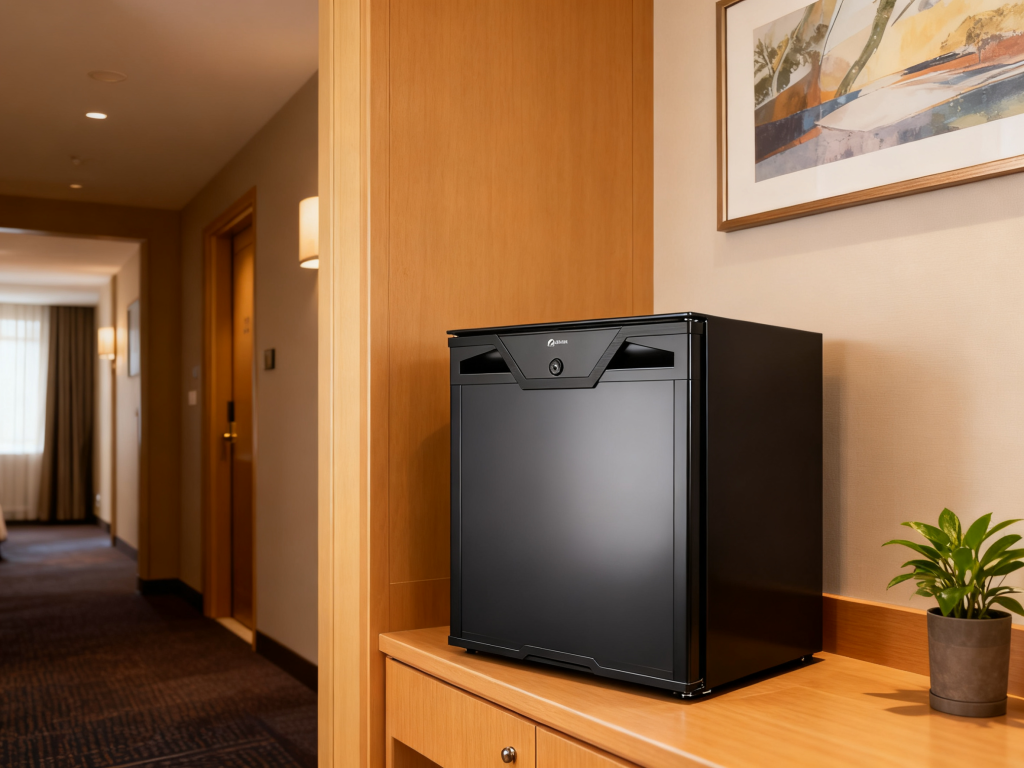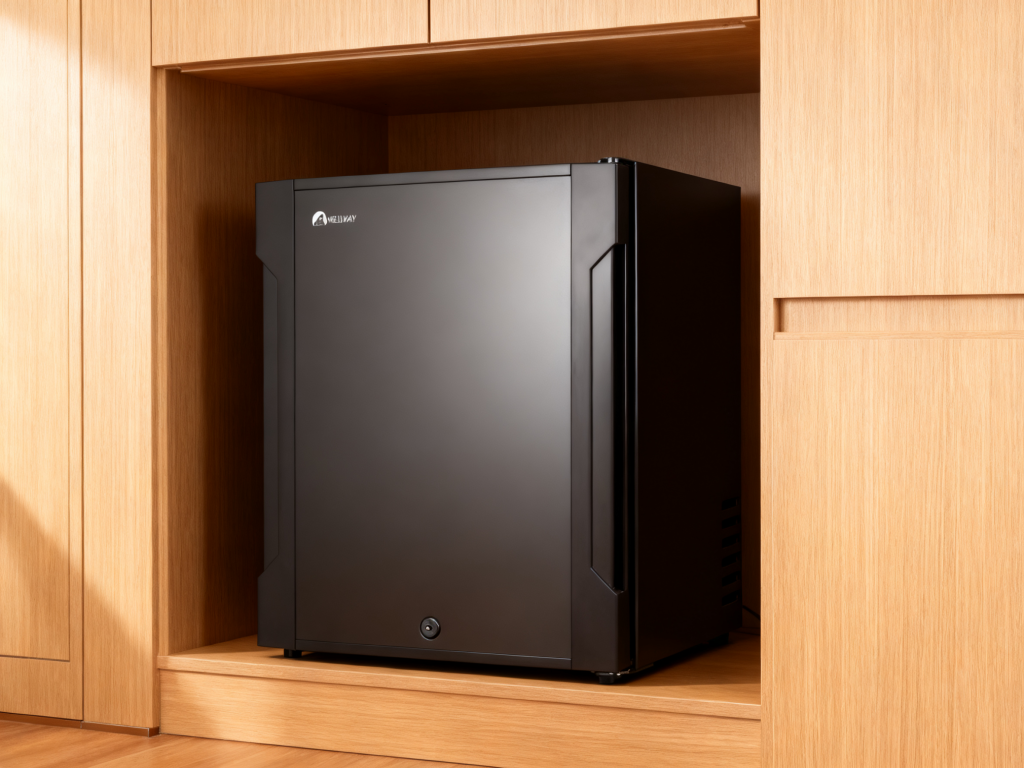In today’s sustainability-driven world, innovation in every industry is steering toward environmentally friendly solutions — and refrigeration is no exception. As hotels, offices, and homes aim to reduce their carbon footprint, the demand for eco-friendly appliances continues to rise. One of the most notable developments in this space is the introduction of plastic-door refrigerators, offering a combination of durability, energy efficiency, and reduced environmental impact. This emerging trend represents a meaningful step forward in sustainable cooling.

Hotel-style refrigerators have evolved remarkably over the past decade. Traditional mini-bars and compact fridges are being replaced with newer models designed for energy efficiency, quiet operation, and environmentally conscious materials. Among these, plastic-door refrigerators have gained increasing popularity in hotels, guesthouses, and motels.
Using high-quality plastic doors means they are not cheap or disposable materials. Instead, these fridges feature durable, corrosion-resistant plastics that are lighter than metal, easier to install, and designed to last. Their lightweight structure makes them particularly suitable for hotel environments where units may need to be moved or replaced frequently. What’s more, their ability to resist rust and moisture extends their service life, reducing the number of replacements — and therefore lowering waste and resource consumption.
At first, associating “plastic” with sustainability might seem contradictory. However, when carefully designed, plastic-door fridges can be highly eco-friendly in several ways.
Durability and corrosion resistance play a key role. Unlike metal, high-grade plastic doesn’t rust, meaning the fridge maintains its appearance and function for years with minimal maintenance. The longer a product lasts, the less frequently it must be replaced — reducing both manufacturing and disposal impact.
Another factor is energy efficiency. Modern mini-bar and hotel fridges are designed with advanced compressors, effective insulation, and smart temperature control systems—these improvements much lower energy consumption, which in turn reduces carbon emissions and operating costs. In hospitality settings, where dozens or even hundreds of units may run simultaneously, these savings add up to a substantial environmental benefit.
Finally, a lightweight design also contributes to sustainability. A lighter fridge requires fewer raw materials during production and less energy during transportation. This efficient use of resources helps reduce the overall environmental footprint from factory to final use.
Refrigerators play a key role in both domestic and commercial energy consumption. By optimizing compressor technology, insulation materials, and design, manufacturers can greatly reduce electricity usage. This aligns with global sustainability goals to lower greenhouse gas emissions and improve energy efficiency in appliances.
Plastic-door fridges often incorporate CFC-free refrigerants, which help reduce harmful emissions during operation. Combined with low-noise motors and efficient insulation, these units deliver high performance while maintaining an eco-conscious profile.
The hospitality industry has a unique set of requirements — energy savings, compact design, low maintenance, and guest comfort. Plastic-door mini-bar refrigerators meet all these needs. Their quiet operation ensures a peaceful environment for guests, while their compact size saves valuable room space. At the same time, hotels benefit from reduced energy bills and less frequent maintenance, making these units a smart long-term investment.
In addition, many models now feature customizable designs that complement modern interior aesthetics. Hoteliers can choose from various colors and finishes, aligning their eco-friendly practices with elegant room décor. This makes the shift toward sustainability not just practical but also stylish.

For those considering adopting eco-friendly plastic-door refrigerators, several key factors can guide a smart purchase decision:
When these elements align, a plastic-door fridge becomes more than a convenience — it becomes a statement of environmental responsibility.
While plastic-door refrigerators offer many sustainability benefits, a few challenges remain. Some consumers perceive plastic as less premium than stainless steel or glass, so manufacturers must focus on design aesthetics and material quality. Besides, the thermal performance of plastic must be carefully engineered to ensure strong insulation and consistent cooling efficiency.
End-of-life management is another key factor. Even with durable materials, making plastic components that can be easily recycled or repurposed is important for maintaining a truly sustainable lifecycle. Manufacturers are increasingly adopting eco-design principles to make disassembly and recycling simpler.
The emergence of eco-friendly plastic fridges represents a broader transformation in the refrigeration industry — one that balances innovation, functionality, and environmental awareness. By combining durable plastic materials with energy-efficient technology, manufacturers are creating appliances that cater to both sustainability goals and modern lifestyle needs.
For hotels and commercial spaces, these fridges offer a winning combination of practicality, efficiency, and cost-effectiveness. As global awareness of sustainability continues to grow, the popularity of plastic-door refrigerators is expected to rise even further.
The success of this trend shows a main message: eco-friendly doesn’t have to mean compromise. With thoughtful design and responsible manufacturing, plastic-door refrigerators are setting a new standard for sustainable cooling — one that blends performance with purpose for a greener future.
Recent postsLearn More